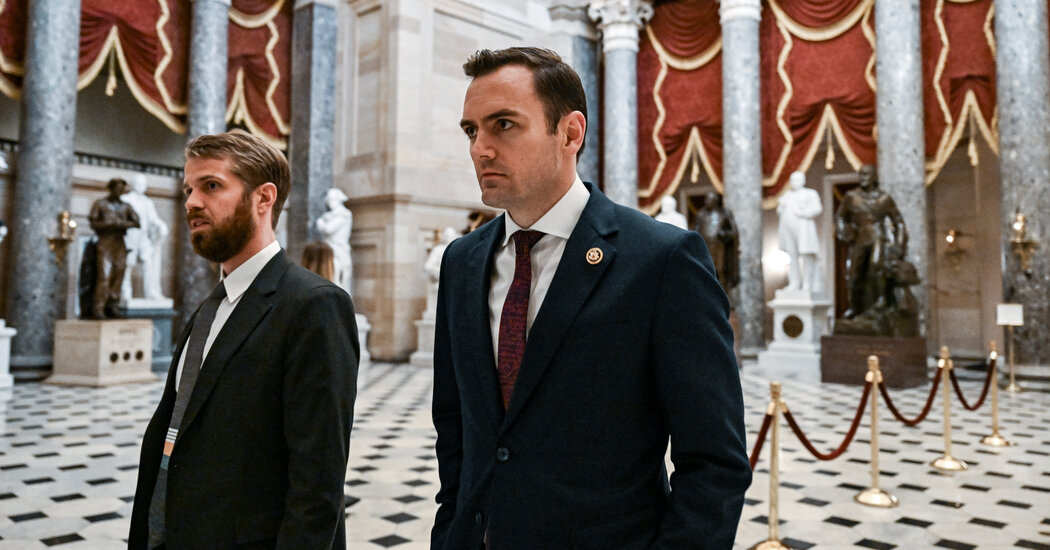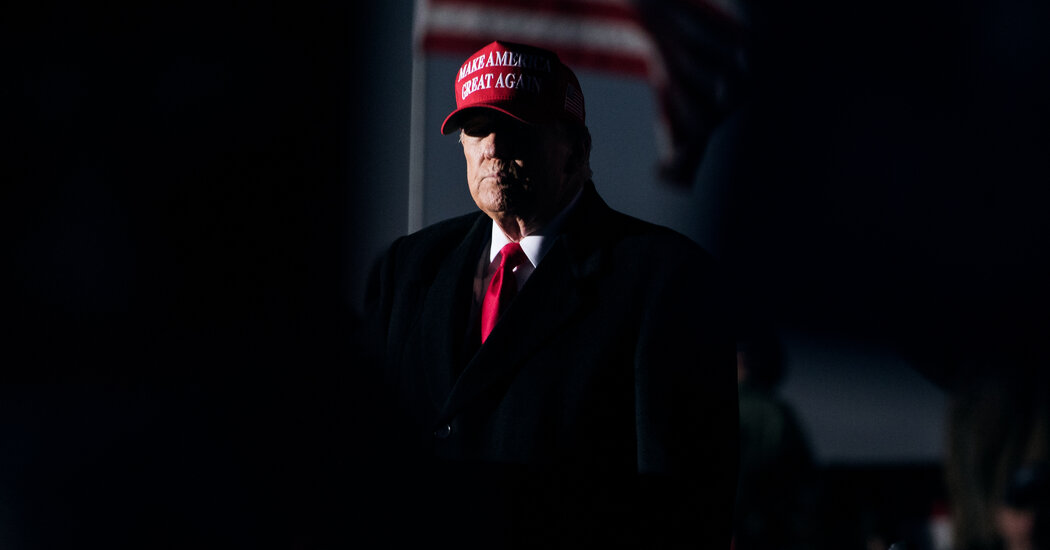House lawmakers on Wednesday approved legislation meant to force ByteDance, the Chinese internet company, to sell its wildly popular social media app TikTok.
The vote was the latest development in a yearslong cold war between the United States and China over who controls valuable technology from computer chips to artificial intelligence. Lawmakers and the White House have expressed concerns that TikTok’s Chinese ownership poses a national security risk because Beijing could use the app to gain access to Americans’ data or run a disinformation campaign.
The bill faces a difficult path in the Senate. Senator Chuck Schumer of New York, the Democratic leader, has not yet committed to bringing it up for a vote.
Here’s what to know about the bill.
Why have House lawmakers supported the bill?
Many are worried that the Chinese government could demand the personal data of Americans from ByteDance and that, under Chinese law, ByteDance would have to comply.
Lawmakers including Representative Mike Gallagher, the Wisconsin Republican who co-led the bill, and Senator Mark Warner, Democrat of Virginia, also say China could use TikTok’s powerful algorithm to feed its users political propaganda. Christopher A. Wray, director of the Federal Bureau of Investigation, and Avril Haines, director of national intelligence, have flagged the concerns in the last year.
The bill, which Mr. Gallagher introduced with Raja Krishnamoorthi, an Illinois Democrat, has had bipartisan support. The House voted to pass the bill 352 to 65, with one voting present.
TikTok says the concerns are baseless. It notes that about 60 percent of the company is owned by global institutional investors, including the financial giants Susquehanna International Group and BlackRock. It also says that three Americans are on its five-person board. According to the company, it has spent more than $1 billion on a plan that stores sensitive U.S. user data domestically on servers operated by Oracle, the American cloud computing company.
How would the bill force ByteDance to sell TikTok?
The bill essentially says that TikTok must be sold within six months to a buyer that satisfies the U.S. government. The sale would have to guarantee that ByteDance no longer has any control over TikTok or its algorithms that recommend content to users.
If ByteDance cannot or refuses to sell TikTok, it would be unlawful for app stores and web hosting companies to distribute or update the app in the United States. The Justice Department could punish any company that works with TikTok or offers its app for download.
Would it be easy for ByteDance to sell TikTok?
Probably not.
With 170 million users in the United States alone, TikTok would carry a high price tag, which few companies or individuals could afford. If forced to sell, it’s also unclear whether ByteDance would put the app’s entire global footprint up for sale or just its United States operation.
Some of the companies that could potentially afford to buy TikTok are tech giants like Microsoft, Google and Meta, the owner of Facebook and Instagram. But the Biden administration has tried repeatedly, using antitrust law, to block those companies from becoming bigger.
Even if ByteDance could find a buyer for TikTok, China might not let a sale occur. In 2020, when American officials first tried to force a sale of TikTok, Beijing placed export restrictions on technology that sounded similar to TikTok’s content recommendation algorithm. Last year, Beijing said it would oppose a sale.
“You’re not going to be able to force ByteDance to divest,” said James Lewis, a senior vice president at the Center for Strategic and International Studies.
What are ByteDance’s other options for TikTok?
Besides a sale, ByteDance could potentially pursue other options, like spinning off TikTok through an initial public offering.
The details of the divestment would probably hinge on a key question regarding whether ByteDance would sell or spin off the entire global footprint of TikTok’s operations or just the portions of the app that operate in the United States. Selling just the U.S. app alone could prompt major issues, from how does the algorithm that suggests content to users function to whether it can display content from other countries.
What are the politics of a ban?
Support for a ban has been bipartisan, as Republicans and Democrats have both been concerned about China’s influence.
But in a surprise move, former President Donald J. Trump opposed the TikTok legislation in recent days. That was a reversal from his position on the app in 2020, when he tried to ban it.
“Trump’s opposition is a meaningful new headwind to this bill becoming law,” said Paul Gallant, a policy analyst for TD Cowen. “A lot will depend on whether he goes to the mat on this TikTok bill the way he did with the border security bill.”
Free speech groups have also opposed the bill, saying they worry that a ban would shut down expression.
How would a ban work, and what would it mean for TikTok users?
If the bill passes the Senate and is signed into law by the president, it would impose civil penalties on app stores, like those operated by Apple and Google, if they distributed or updated TikTok.
The app is already on millions of phones in the United States, but the restriction on updates is likely to degrade users’ ability to access it.
This would be supplemented by a measure that prohibits web hosting companies from helping to distribute the app.








